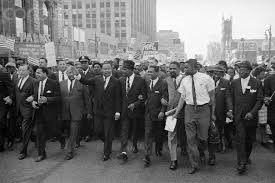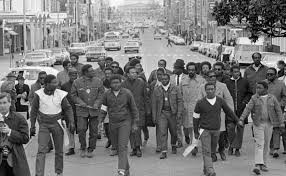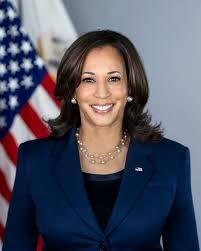My position as a Professor paves the way for me to be involved in far too many discussions of Race. Usually, these intense discussions occur with Black folks who know nothing significant about Race. One thing is for sure, there is always some issue that reminds me of Black folk’s inability to appropriately analyze politico-economic decisions and then make self-advantageous decisions. I am tired of repeatedly seeing Black folks become distracted by minutiae that leads them to waste the scant political power they possess.

As mentioned above, if given enough time, some issues will arise to remind me of how inefficient my people are when it comes to thinking about Race and politics. The most recent issue is the ascension of Kamala Harris.
As a writer focused on Black men and Race, these moments resemble a fertile field. As soon as Kamala Harris’s ascension to the top of the Democratic Party’s ticket became a possibility, I heard a litany of commentary from Black men. Black men issued the following remarks.
- She is not Black, so I will not be voting for her.
- She has locked up so many brothers as a prosecutor.
- What has she done for Black people from her current White House position?
I avoid the use of anecdotal evidence in my writing. So, I distrusted commentary from friends and family pledging to vote against anyone running against Trump as much as those dedicated to not voting for Harris under any circumstances. Instead of using anecdotal evidence, I waited until the polls, studies, and surveys appeared.

A recent survey from Howard University, I prefer to use data from Black sources, verified my belief that the most significant weakness for Kamala Harris’ political aspirations was found among Black men. According to the Howard University poll, Black men between the ages of 18 and 49 are not as supportive of Harris as other segments of Black America. Only 75% of the above demographic supported her, while 16% opposed.
Compared to Black America’s reliable support for the Democratic Party that began with the off-year election (1934) of FDR’s first term and increased significantly with JFK’s White House tenure, the relatively tepid support for Kamala Harris is intriguing. Does it mean that the extended gender wars have finally pushed Black males to hate Black women, or is this a sign of long overdue frustration with Democratic Party politicians who neither address nor provide any legislative solutions to the many socioeconomic problems that have shadowed Black men since the first parcel of “half-free” African men were sold to the Jamestown colony? It is not difficult to believe that many Black men are not only frustrated with their present lives but also see no solution to the racial discrimination and grinding poverty they experience daily.
To the chagrin of American politicians, Black men understand that the election of Kamala Harris or anyone else will not immediately solve their problems. At best, Black men are a means to political power for politicians who offer nothing in exchange.
Unfortunately, it appears that the Harris campaign’s most persuasive argument for wooing Black men is not legislative promises; it is highlighting Donald Trump’s wild attacks on the Central Park Five or racial discrimination charges against the real estate tycoon. If nothing else, this proves that American politicians still do not understand that the most efficient manner to garner the support of Black men is no different than the means they use on other groups. Directly state what you are offering them for their vote. Anything less simultaneously speaks volumes about politicians’ view of Black men and makes them unworthy of our vote.
I hope that Kamala Harris’ campaign learns this sooner than later because the stakes are high.
Dr. James Thomas Jones III
© Manhood, Race, and Culture 2024.

